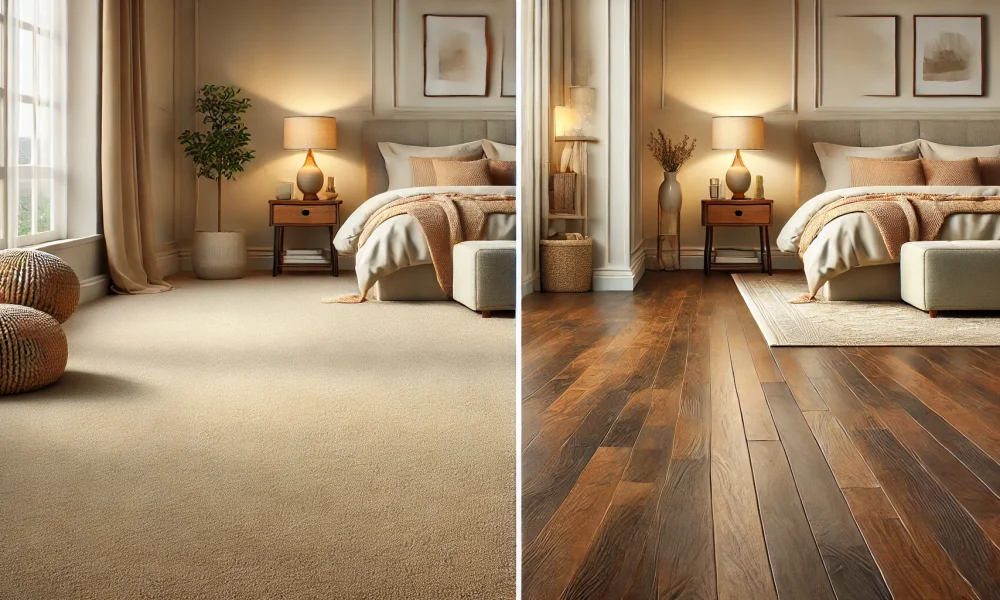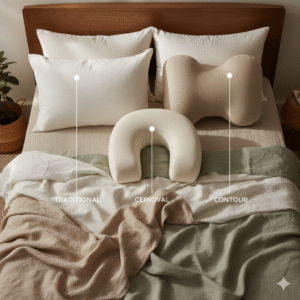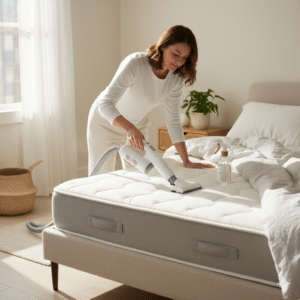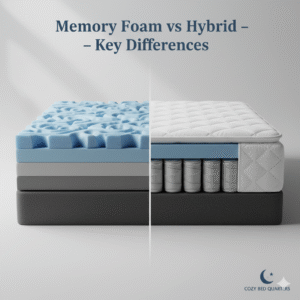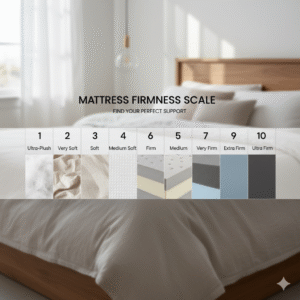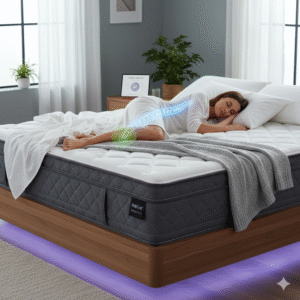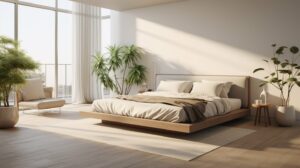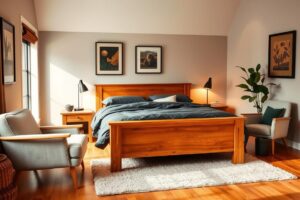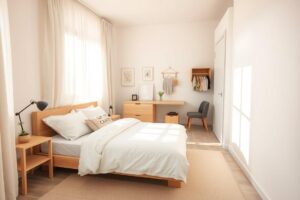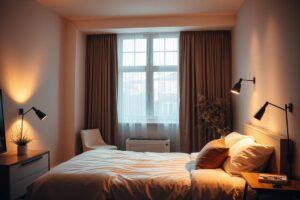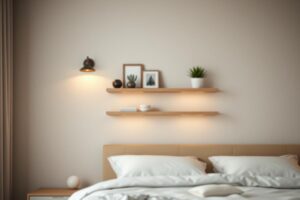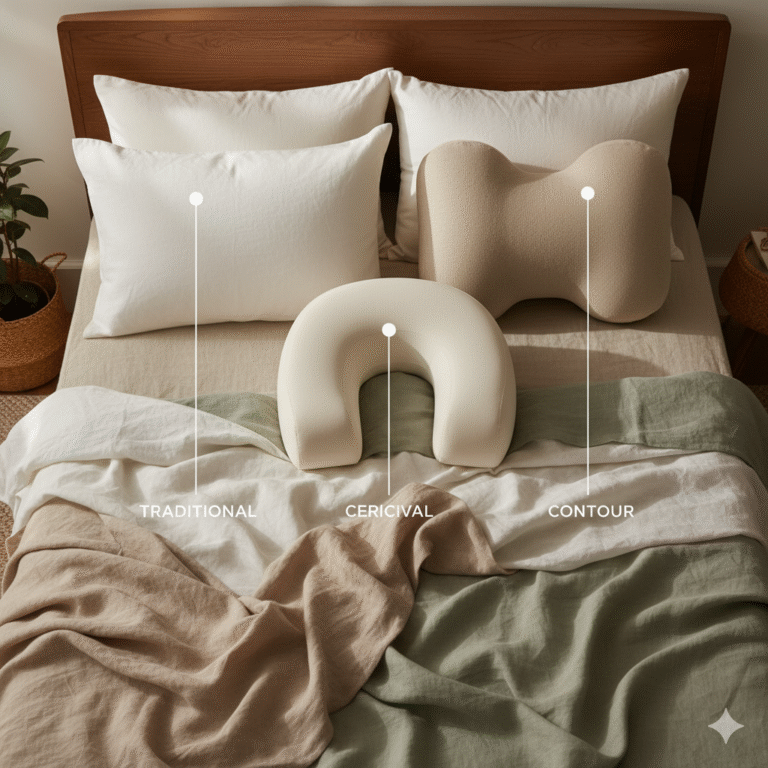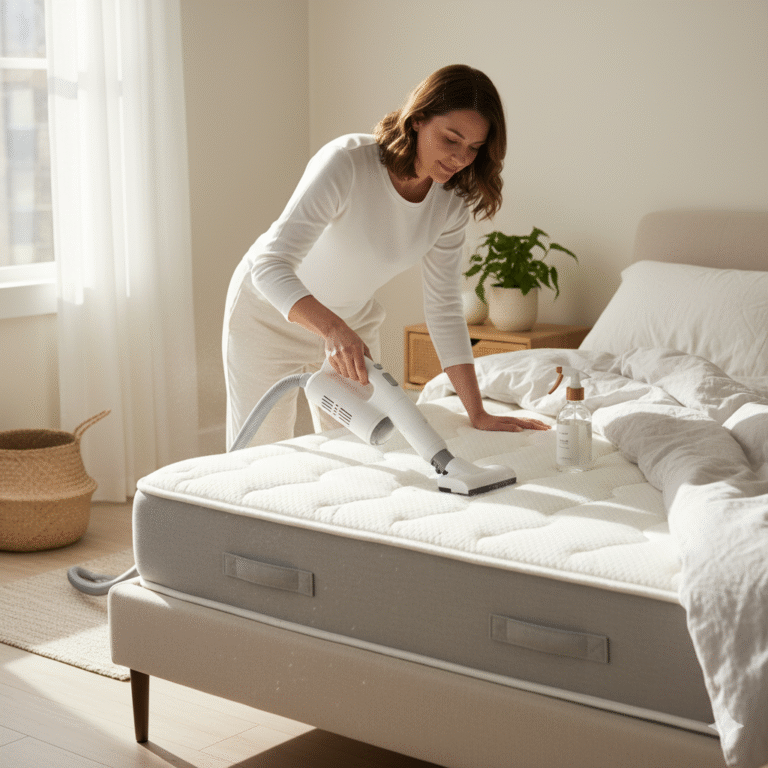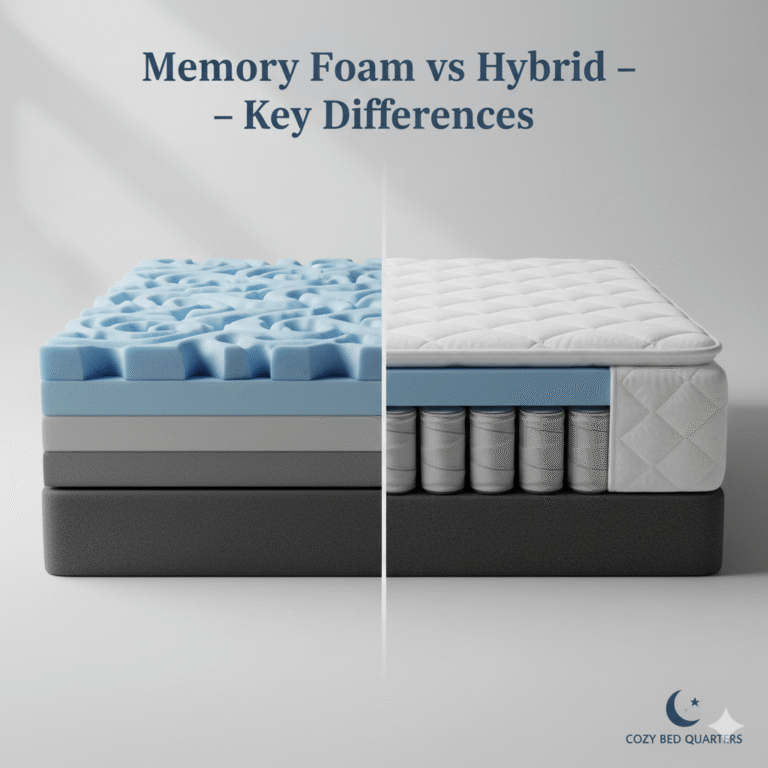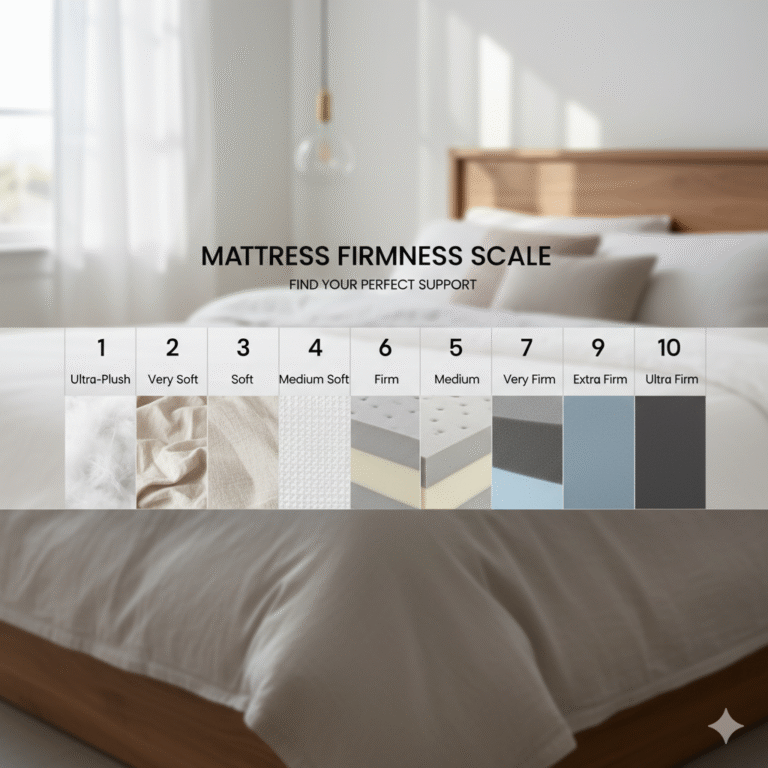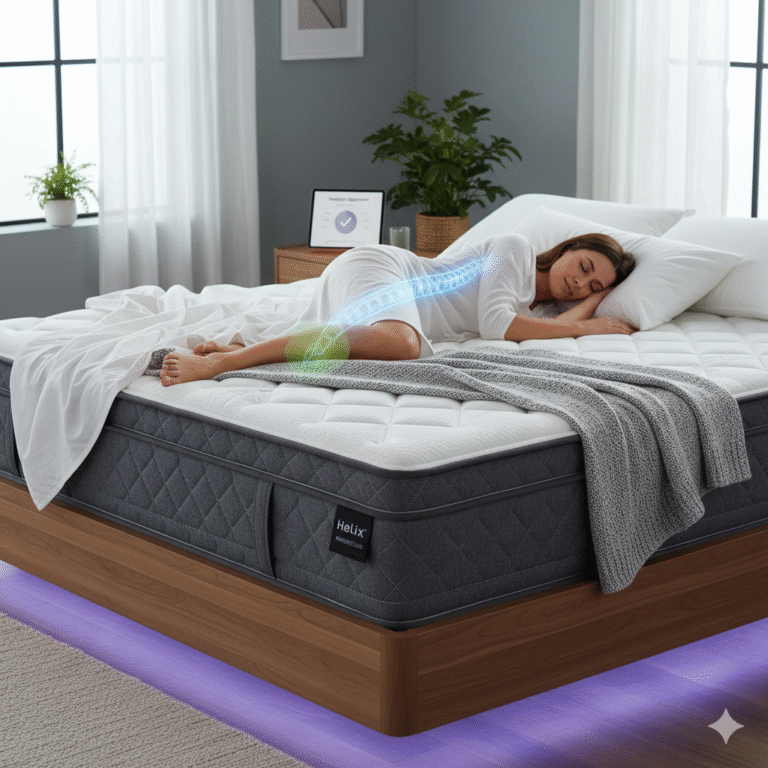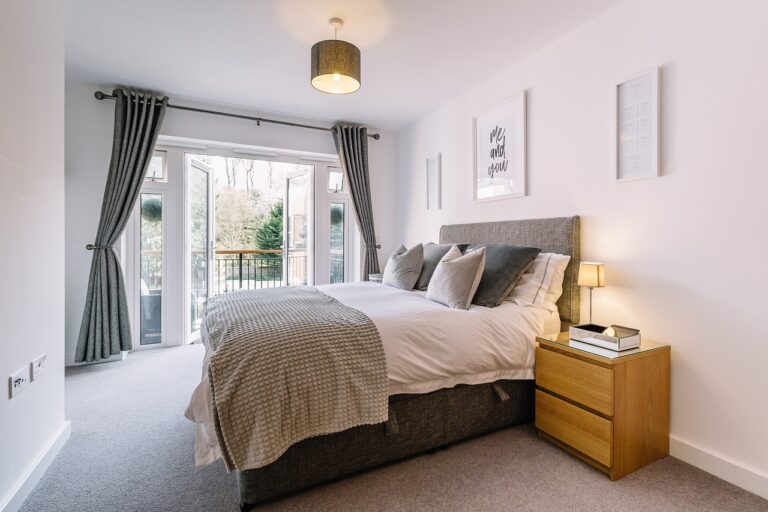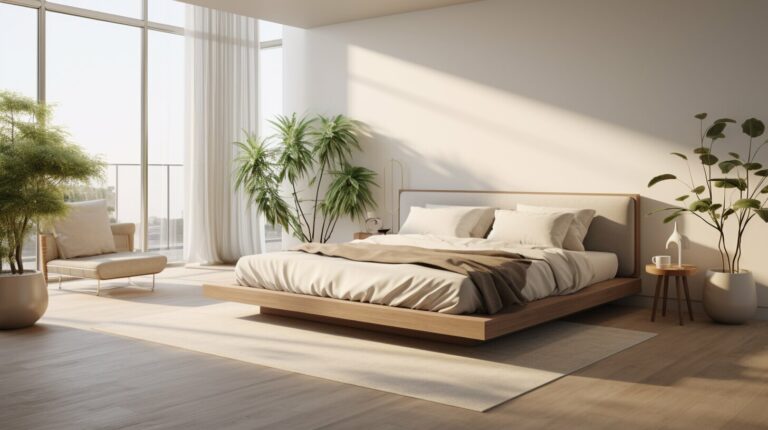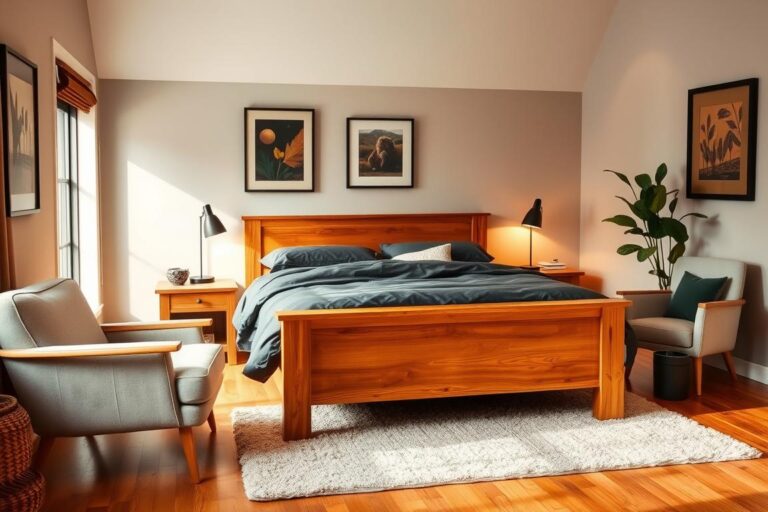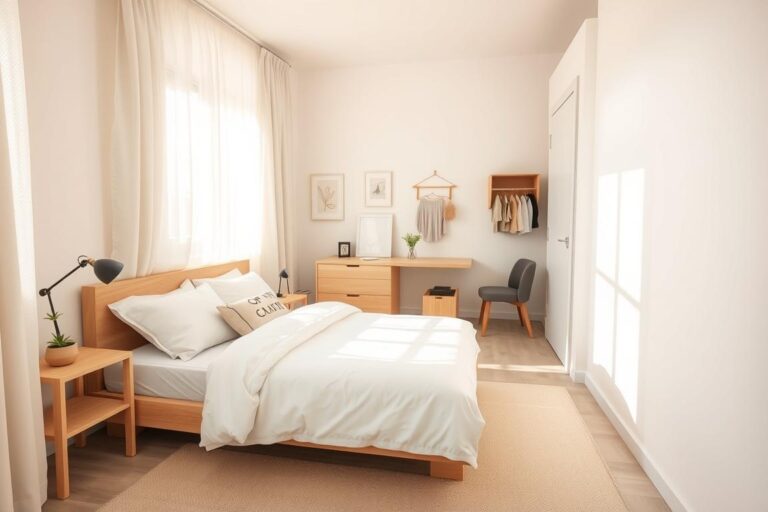Carpet vs Hardwood: Choosing the Best Bedroom Flooring
Carpet vs Hardwood is the classic bedroom flooring debate. This warm, practical guide compares comfort, cleaning, cost, style, and sustainability so you can confidently pick what’s right for your bedroom.
Key Takeaways: Carpet vs Hardwood
- Comfort: Carpet vs Hardwood is a tradeoff between cushioned warmth and cool, elegant underfoot feel.
- Maintenance: Hardwood cleans quickly and can be refinished; carpet needs regular vacuuming and occasional deep cleaning.
- Longevity & Value: Hardwood often lasts decades and supports resale value; carpet is budget-friendly upfront.
- Noise & Sleep: Carpet absorbs sound; hardwood benefits from area rugs and pads to quiet the space.
- Best Fit: Balance lifestyle, climate, allergies, and budget to make the best Carpet vs Hardwood choice for your bedroom.
Comfort & Warmth
Answer first: Choose carpet for plush warmth and quiet; choose hardwood for a smooth, luxe feel that pairs beautifully with area rugs.
Carpet cushions every step and helps bedrooms feel warmer in cooler seasons. It’s gentle for kids and reduces slips for older adults. Hardwood delivers a sleek, refined surface; in warm climates, the cooler feel can be refreshing. If you want softness without committing to wall-to-wall carpet, add an area rug over wood flooring for a cozy hybrid approach. See how layered rugs change the vibe in our guide to Layering and Combining Rugs for a Cozy Bedroom.
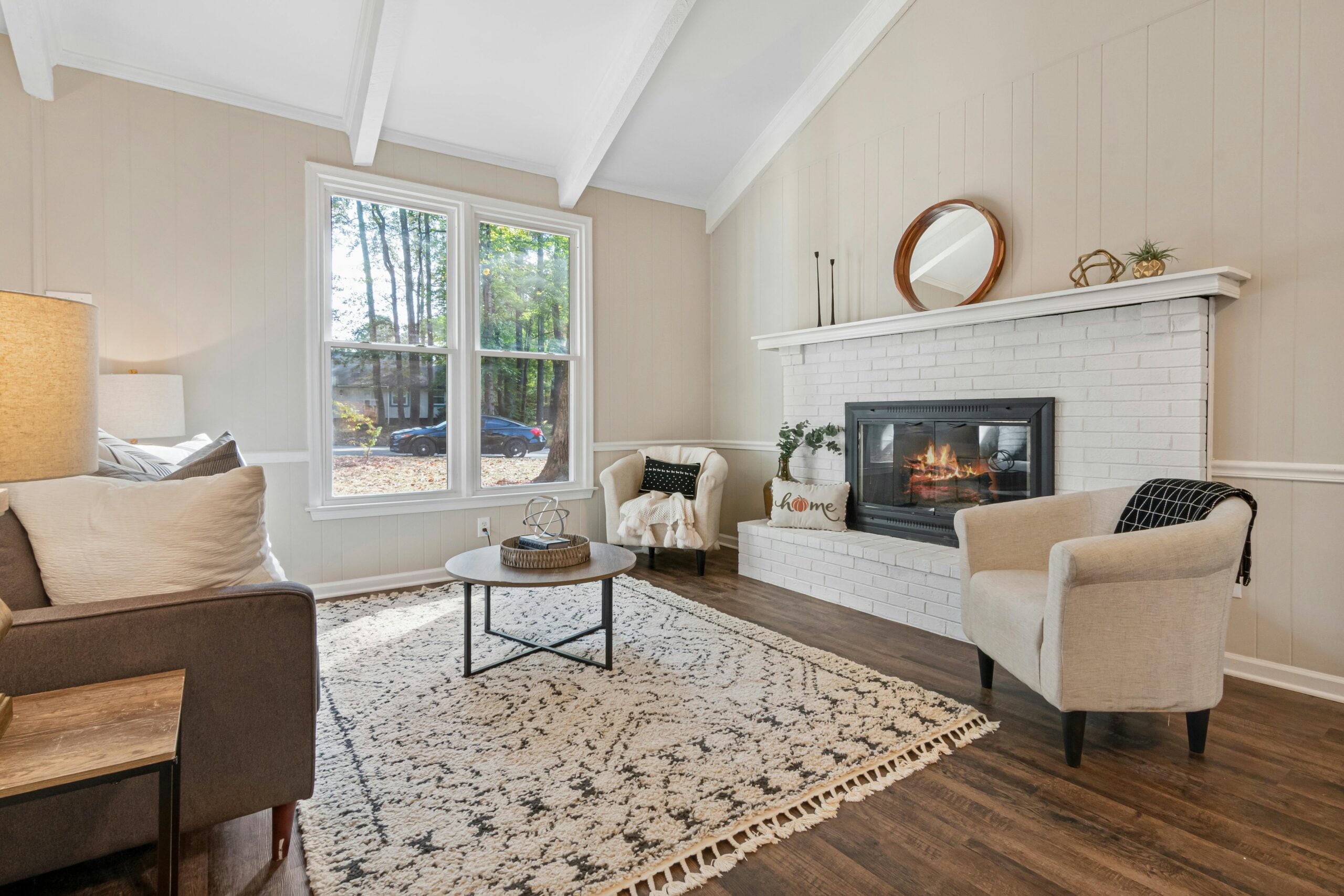
Noise, Sleep, & Privacy
Answer first: Carpet wins for sound absorption; hardwood needs textiles—rugs, curtains, and upholstered pieces—to reduce echo.
Bedrooms should feel hushed. Carpet dampens footfall and airborne noise, which can help light sleepers. Hardwood reflects sound more, but a plush rug with a quality pad plus heavy drapery can make the room just as restful. For a broader sleep-environment overview, the Sleep Foundation’s guidance on bedroom setup is helpful: Bedroom Environment Tips.
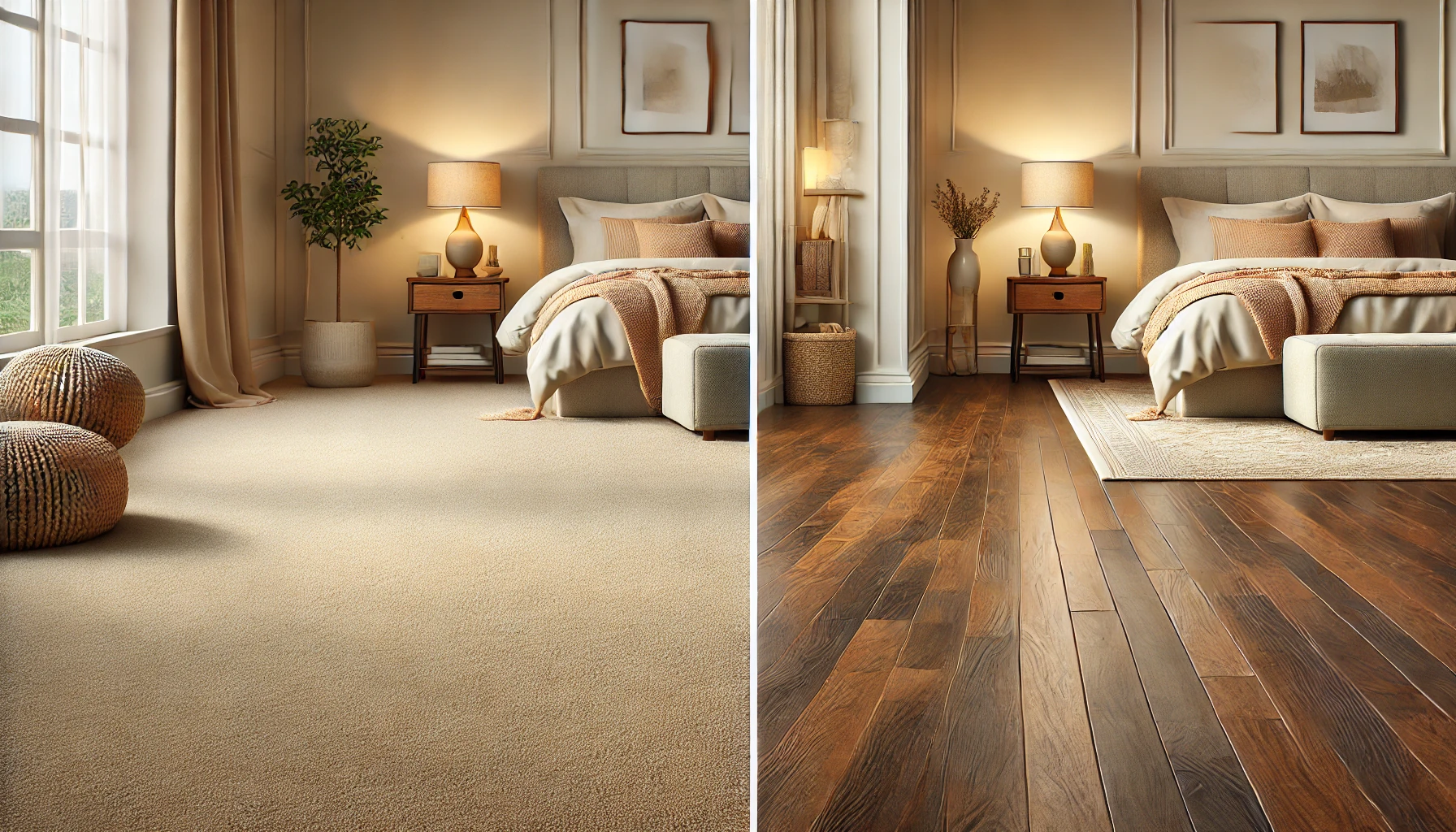
Maintenance & Longevity
Answer first: Hardwood is easier to keep clean day-to-day and can be refinished; carpet requires vacuuming and periodic deep cleaning.
Hardwood usually needs only sweeping or vacuuming and occasional damp mopping. Many wood floors can be sanded and refinished, extending life for decades. Carpet benefits from regular vacuuming and quick stain treatment; professional cleaning keeps fibers fresh. For choosing textiles that go the distance, see our guide to quality rugs and carpets.
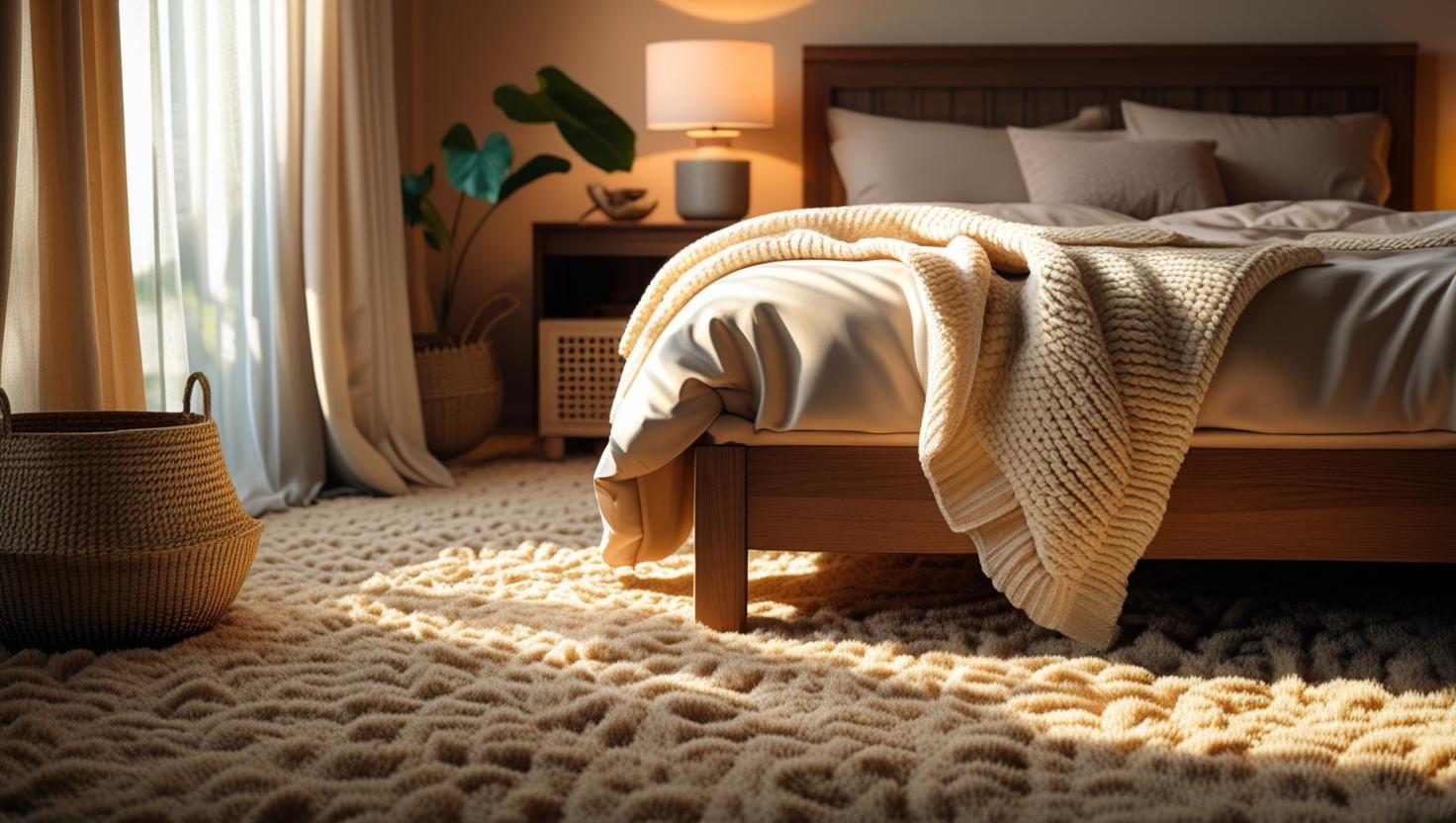
Health, Allergies, & IAQ
Answer first: Hardwood minimizes dust retention; low-pile carpet plus HEPA vacuuming can also work for sensitive sleepers.
Allergens settle differently on flooring. Smooth wood surfaces make it easier to remove dust and pet dander. If you love carpet, choose a low-pile style and vacuum with a sealed HEPA machine. Bedding choices matter, too—pair your flooring with breathable, cleaner-feeling textiles (see Bedding and Allergies: Key Facts and Temperature-Regulating Bedding).
Style & Aesthetics
Answer first: Carpet offers color and pattern for a tailored look; hardwood brings natural grain and timeless character.
Carpet’s texture and patterns can make a bedroom feel snug and layered. It hides wear and adds warmth to minimalist schemes. Hardwood reads classic and upscale, adapting easily from modern to traditional rooms. For trend and design context, Better Homes & Gardens offers approachable flooring coverage: Flooring Types & Ideas.
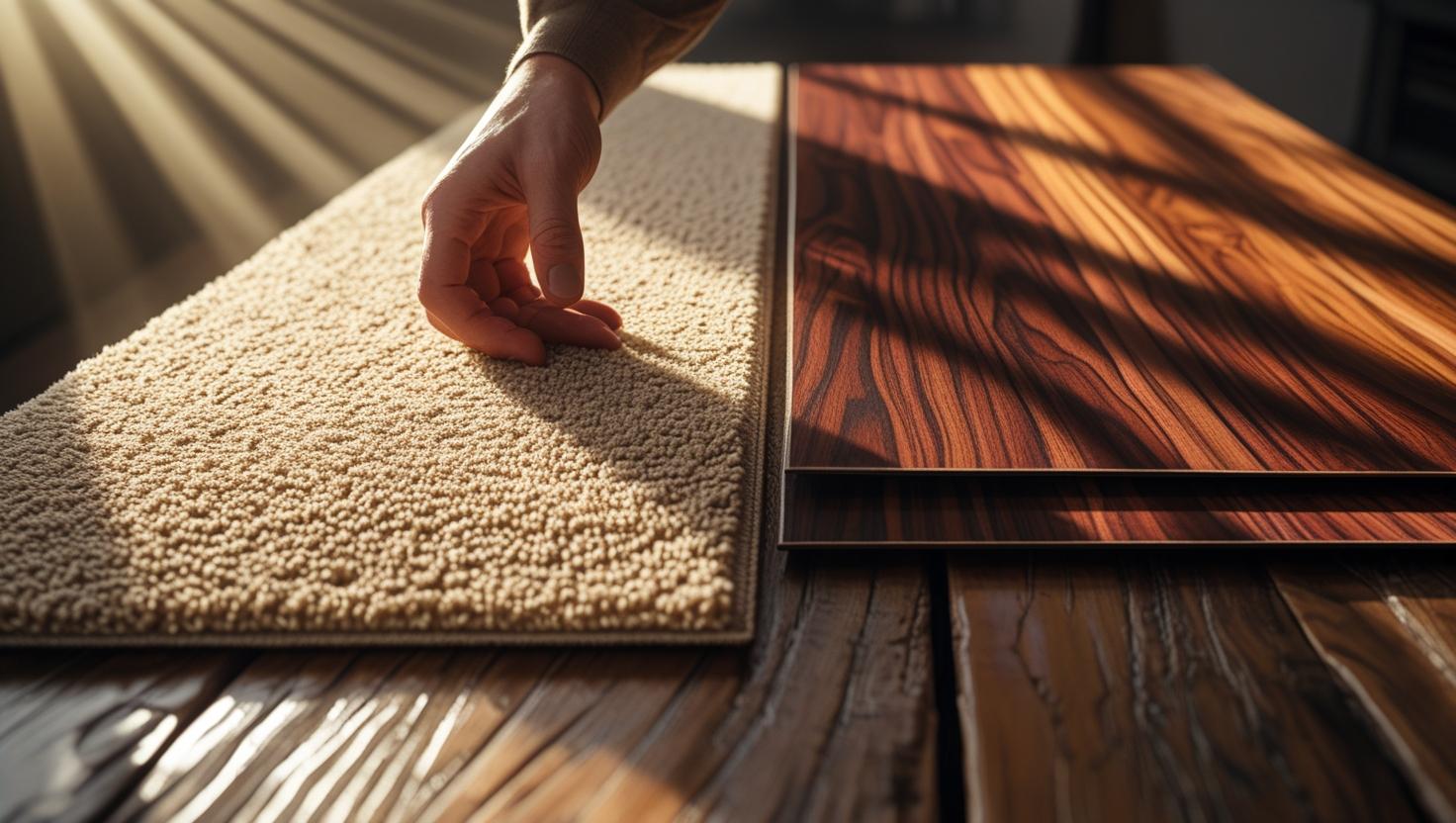
Cost, ROI, & Resale
Answer first: Carpet usually costs less upfront; hardwood often wins on lifespan and resale appeal.
Carpet is budget-friendly to install and cozy from day one. Hardwood requires a higher initial investment but may outlast several carpet replacements and can help with resale value. If you’re staying long-term or plan to sell, hardwood’s longevity can tip the Carpet vs Hardwood decision.
Installation & Practicalities
Answer first: Carpet installs quickly and forgives minor subfloor flaws; hardwood demands careful prep and acclimation.
Carpet pad smooths small imperfections and quickens installation. Hardwood needs a flatter subfloor and time to acclimate to the room’s humidity. Engineered hardwood can be more stable over slabs or in variable climates. In both cases, transitions, baseboards, and door clearances matter—plan them before you order materials.
Sustainability & Certifications
Answer first: Wood sourced under standards like FSC and low-VOC finishes are eco-friendlier; carpet with Green Label Plus and recycled content is improving fast.
If sustainability weighs into your Carpet vs Hardwood choice, look for certifications. For wood: FSC (Forest Stewardship Council) or PEFC plus low-VOC finishes. For carpet: Green Label Plus for low emissions and options using recycled PET or nylon. Layer your finished room with breathable, eco-friendly sustainable bedding and consider sustainable bedding brands to keep the whole space healthier. Parachute’s design tips are also useful for greener bedrooms: Sustainable Bedroom Design Ideas.
Climate, Comfort, & Temperature
Answer first: Cold climates favor carpet’s insulation; warm climates favor hardwood’s cooler touch plus a rug.
In cooler regions, carpet helps retain heat and softens winter mornings. In warmer climates, hardwood feels more comfortable and pairs well with breathable textiles. If you tend to sleep hot, your bedding matters just as much as floors—check our guide to bedding materials for lighter, airy fabrics.
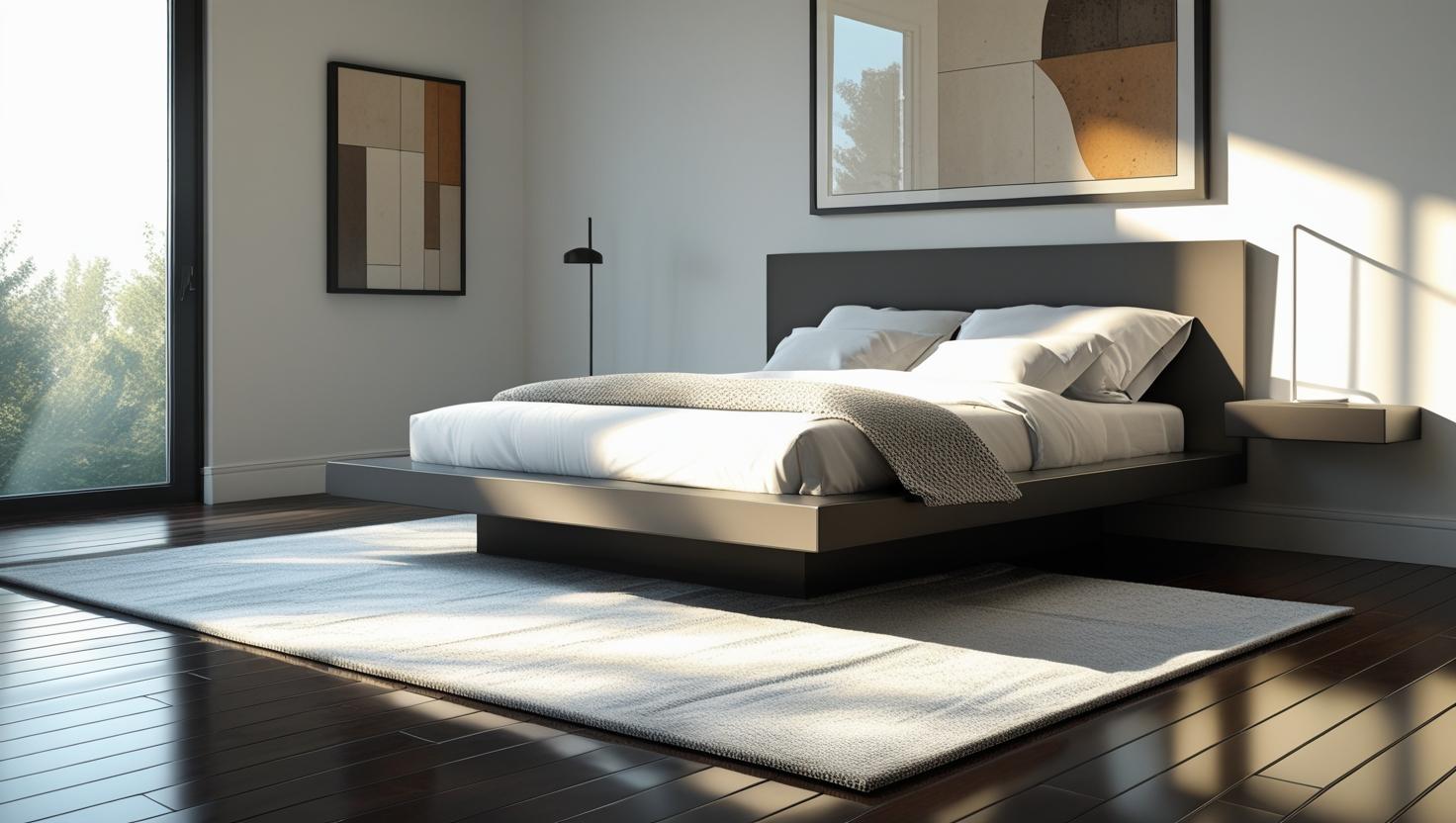
Buyer’s Guide: How to Decide Quickly
Answer first: Use this quick checklist to finalize your Carpet vs Hardwood choice.
- Lifestyle: Kids/pets? Carpet for padding and noise control; hardwood if spills are common and cleanup is key.
- Climate: Cold = carpet edge; warm = hardwood edge.
- Allergies: Favor hardwood; or choose low-pile carpet and a HEPA vacuuming routine.
- Budget horizon: Short term = carpet; long-term ROI = hardwood.
- Design style: Love patterns and cozy layers? Carpet. Prefer clean, classic lines? Hardwood.
- Sustainability: FSC/low-VOC finishes for wood; Green Label Plus and recycled content for carpet.
For a calmer, sleep-optimized room, also consider layering textiles and sound: White Noise Machines & Sleep Soundtracks and How to Design the Ideal Bedroom for Sleep.
Common Mistakes to Avoid
Answer first: Don’t forget rugs on hardwood, carpet pad quality, or future maintenance costs.
- Skipping a rug on hardwood: Rooms can echo and feel cold. Add a rug and quality rug pad.
- Choosing the wrong carpet pad: Too thin and the floor feels flat; too thick and it can reduce carpet life.
- Underestimating maintenance: Plan for carpet cleanings or hardwood refinishing in your budget.
- Ignoring humidity: Manage moisture for wood stability and carpet freshness.
- Neglecting the whole ecosystem: Flooring, air, noise, and textiles all affect sleep comfort. Pair with organic bedding, sustainable bedding, and even eco-conscious sheets for a healthier space.
FAQ
- Which feels warmer underfoot, carpet or hardwood?
- Carpet retains heat and feels warmer, which can help in cold climates and early mornings.
- Is hardwood better for allergies than carpet?
- Generally yes. Hardwood doesn’t trap dust as easily. If you prefer carpet, choose low-pile and vacuum with a sealed HEPA unit.
- Which option adds more resale value?
- Hardwood typically supports resale value because it lasts longer and can be refinished.
- Can I combine carpet and hardwood in my bedroom?
- Absolutely. Hardwood with an area rug gives you softness where you want it and the elegance of wood overall.
- What certifications should I look for?
- For wood, look for FSC and low-VOC finishes. For carpet, look for Green Label Plus and products with recycled content.
Final Thoughts: Choosing Carpet vs Hardwood for Your Bedroom
In the end, Carpet vs Hardwood is about comfort, care, and how you live. If you want a plush, whisper-quiet room, carpet is a win. If you value simple cleaning, longevity, and classic style, hardwood is hard to beat. For a complete bedroom refresh, explore Cozy Bed Quarters resources like rug layering and bedding material choices to round out your space.
Related Reading
Feng Shui Bedroom Tips for Harmony and Better Sleep
Layering and Combining Rugs for a Cozy Bedroom Feel
Best Bedding Material to Enhance Your Sleep
Sleep Foundation: Bedroom Environment
Better Homes & Gardens: Carpet vs. Hardwood
Parachute Home: Sustainable Bedroom Design Ideas

